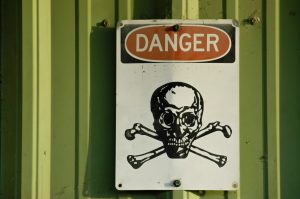Earlier this month the Supreme Court heard arguments in an unusual case arising from a criminal prosecution concerning a woman who tried to poison her best friend and was later convicted of a federal crime for her actions. The case is a test of whether the federal government can use treaties as a basis to prosecute Americans, something that the justices appeared to be skeptical of. The origins of this case go back to 1998 when the government passed a law that banned the use of chemical weapons for anything other than a “peaceful purpose.” The law was derived from a treaty signed in 1993, which represented an international agreement on the subject. The goal of the accord was to prevent terrorist groups from getting their hands on weapons of mass destruction, arguably not to target spurned microbiologists.
The person at the center of the case, Carol Bond, was a Pennsylvania microbiologist who discovered that her former friend had been having an affair with her husband and had become pregnant as a result of that affair. Bond, apparently furious, tried to poison the woman by taking chemicals from her office at Rohm and Haas and coating her friend’s doorknobs, mailbox and car door handles for nearly six months.
While no one denies that the case qualifies as criminal, many were stunned when federal authorities decided to prosecute Bond. Typically, cases like this would be handled by state authorities. Instead, the federal chemical weapons law, based on an international treaty, was used as the basis for prosecuting the woman as a potential terrorist.
Bond appealed her conviction saying that the federal law violated the powers given to Pennsylvania under the Constitution. Several justices during oral arguments appeared to agree, with two conservatives and one liberal justice openly mocking the Justice Department’s decision to prosecute Bond for the attempted poisoning. The justices were especially concerned by how broadly the chemical weapons law could be interpreted, potentially including a range of substances as benign as performance enhancing drugs.
The government argued that so long as the treaty used as a basis for the law was a valid treaty then the implementing law should be considered constitutional even if it ventures into areas that are usually handled by the states. Bond’s attorney, Paul Clement, said that the chemical weapons law, which governs criminal conduct, violates the basic notion of a federalist system that denies Congress a general police power.
We’ll have to wait another few months before a decision is reached in Bond’s case, something that will be watched closely by the criminal defense community. If the justices decide to affirm Bond’s conviction, then, as the Third Circuit Court of Appeals noted in its opinion on the case, it is possible that every kitchen cupboard and cleaning cabinet in American might be turned into a potential chemical weapons cache.
Source: “Supreme Court skeptical of government’s chemical weapons case,” by Josh Gerstein, published at Politico.com.
